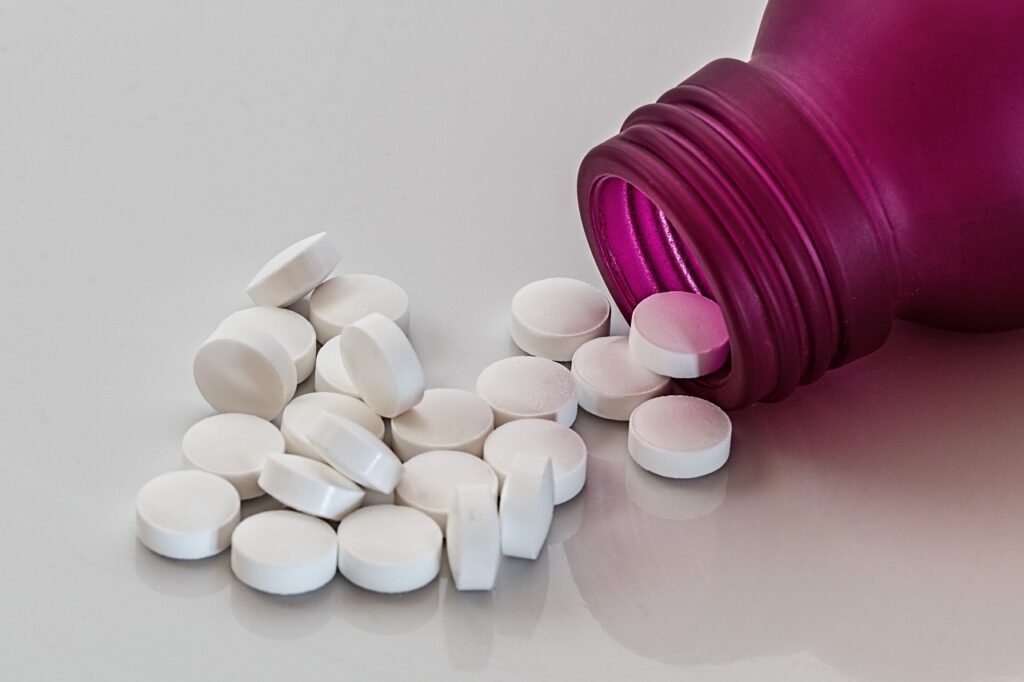20+ Years Experience
Specialist Inpatient Rehabilitiation

Cocaine addiction is a prevalent issue that affects countless lives, shattering families and careers. But there is hope.
With the right treatment and ongoing support, individuals can break free from the chains of addiction and reclaim their lives.
In this blog post, we will explore the intricacies of cocaine addiction rehab, offering valuable insights and guidance on choosing the right rehab centre, understanding the cocaine rehab programmes, and navigating the challenges of withdrawal and relapse prevention.
Cocaine addiction, also known as cocaine dependence, is a serious issue in the UK, posing a significant threat to both physical and mental health.
This highly addictive substance induces intense physical cravings, anxiety, depression, and even death.
Recognising the signs of addiction is crucial in seeking appropriate treatment for oneself or a loved one.
Indications that a person may require assistance with cocaine addiction may include:
Prolonged cocaine use may lead to various negative consequences and an elevated risk of mental health issues, such as anxiety, depression, paranoia, and panic attacks. A cocaine overdose is also a possibility.
Therefore, it is of utmost importance to seek treatment for cocaine addiction as soon as possible.
A comprehensive treatment plan, like the one provided by Inpatient Rehabilitation, combines a cocaine detox programme, residential rehabilitation, and various therapy approaches such as individual and group therapy.
Depending on the severity of the addiction, individual therapy and group therapy may also be suitable options.
Understanding the nature of cocaine addiction is the first step towards seeking help.
By acknowledging the physical and psychological consequences of cocaine abuse, individuals can make informed decisions about the appropriate course of action for themselves or their loved ones.
Selecting the right cocaine rehab centre is a critical step in recovery. Factors to consider when making a decision include:
Inpatient and outpatient treatments are available, catering to individual needs and preferences.
Tailored treatment plans are designed to provide the best possible chance of achieving a complete recovery.
Private rehabilitation centres offer certain advantages over free treatments, such as immediate access to services, personalised therapy plans, and a higher level of care provided by an addiction specialist.
Additionally, an immersive recovery environment plays a crucial role in overcoming physical dependence on cocaine and accessing various drug addiction treatment options.
When seeking treatment for cocaine addiction, it is essential to understand the differences between inpatient and outpatient treatments.
Inpatient addiction treatment:
Outpatient care, on the other hand, allows patients to continue living at home while attending appointments at the clinic for therapy and prescriptions.
While this option may be more cost-effective, it does not provide the same level of support and supervision as inpatient treatment.
Outpatient care can be challenging as patients remain in their everyday contexts, making it potentially unsuitable for some individuals.
Ultimately, the choice between inpatient and outpatient treatment depends on the individual’s specific needs and circumstances.
Factors such as the severity of the addiction, personal responsibilities, and the presence of a reliable support system should be considered when making a decision.
Tailored treatment plans are paramount in providing the most effective and personalised care for individuals struggling with cocaine addiction.
In treating cocaine addiction, these programmes may include:
By addressing the root causes of addiction, formulating coping strategies, and constructing a reliable support system, tailored treatment programmes can greatly enhance the likelihood of recovery.
However, it is important to note that tailored treatment programmes can be costly and time-consuming, with no guarantee of a successful outcome.
Nevertheless, investing in a personalised and comprehensive treatment plan is crucial for maximising the chances of overcoming cocaine addiction and achieving lasting recovery.
The cocaine rehab process is a multi-step journey that begins with assessment and diagnosis, followed by medically assisted detoxification and various therapy approaches.
Throughout the process, the aim is to address both the physical and psychological components of addiction, as only addressing one component will significantly increase the chances of relapse.
By engaging in a comprehensive and personalised treatment plan, individuals can effectively overcome their drug abuse and substance abuse, embracing a healthier, drug-free life.
The initial step in the cocaine addiction treatment process is undertaking a comprehensive assessment, which serves to determine the most suitable treatment programme for the patient.
A thorough evaluation will help identify the severity of the addiction, as well as any underlying mental health issues that may be contributing to the problem.
Utilising tools such as the DSM-V allows addiction specialists to diagnose a cocaine dependency or addiction based on criteria and symptoms present in an individual with a substance use disorder.
Honesty during the assessment process is crucial, as omitting or tampering with information may lead to a significantly more complex treatment plan or even put one’s health at risk.
By providing accurate and complete information, individuals can ensure that they receive the most effective and appropriate care for their specific needs.
Following assessment and diagnosis, clients can then begin treatment and detoxification.
Detoxification involves the elimination of harmful waste and toxic chemicals that may be present in the body due to substance misuse.
The duration of cocaine detox will vary depending on the individual case, however, the minimum recommended time is 7 days.
Withdrawal symptoms associated with cocaine detoxification can be extremely distressing and may include mood swings, fatigue, and suicidal thoughts.
Medically supervised detox in a cocaine rehab clinic can alleviate discomfort and ensure safety during this challenging process.
By providing 24-hour medical supervision, professionals can closely monitor and manage withdrawal symptoms, making the detoxification process as comfortable and safe as possible.
Detoxification is the first step in cocaine addiction recovery. After that, therapy courses and other holistic treatments can be useful to further progress in cocaine rehabilitation.
A variety of therapy approaches are utilised in cocaine addiction treatment, including cognitive behavioural therapy (CBT), motivational interviewing, dialectical behavioural therapy, and more.
Each addiction therapy approach offers unique benefits in addressing the psychological aspects of addiction and helping individuals develop effective coping strategies.
For example, CBT focuses on thought processes and equips individuals with the tools to replace negative patterns of thinking with more constructive and positive ones.
Motivational interviewing, on the other hand, emphasises aiding individuals in achieving desired changes in their lives, encouraging recovery and bolstering self-belief and confidence.
By engaging in a comprehensive and personalised therapy plan that incorporates various approaches, individuals can effectively address the root causes of their addiction and develop the necessary skills and coping mechanisms to maintain long-term sobriety.
Managing cocaine withdrawal symptoms can be a daunting and challenging aspect of recovery. The symptoms, which may include:
Can be extremely distressing. However, it is important to remember that these symptoms are a natural part of the detoxification process and can be managed with the appropriate support and care.
Medically supervised detox in a rehab centre can help alleviate the discomfort associated with withdrawal and ensure safety during the process.
By closely monitoring and managing withdrawal, addiction professionals can provide the necessary support and guidance to help individuals navigate this difficult phase of recovery and set the stage for successful, long-term sobriety.
Aftercare and relapse prevention are essential components of a successful recovery.
Once you have completed treatment, individuals may continue to engage in ongoing therapy with an addiction specialist, attend support group meetings with other recovering addicts, and participate in scheduled appointments to maintain their sobriety and prevent relapse.
Many individuals in recovery find solace in group therapy such as Narcotics Anonymous, where they can connect with others who share similar experiences and challenges.
The benefits of joining a support group include:
These groups can be invaluable in maintaining sobriety and fostering personal growth for previous cocaine addicts.
By actively participating in aftercare and relapse prevention efforts with an addiction professional, individuals can continue to build upon the progress made during cocaine addiction treatment and embrace a life free from addiction.
In the UK, the cocaine rehab cost can range from £4,000 to £15,000 per month.
While this may seem like a significant expense, it is important to consider the long-term benefits of investing in one’s health and well-being.
The cost of cocaine rehab varies depending on factors such as the clinic, treatment, duration, and specialist care required.
Some individuals may be eligible for free cocaine addiction treatment options, although these may not provide the same level of care and support as private rehab centres.
When weighing the cost of drug rehab, it is crucial to prioritise the quality and effectiveness of treatment to ensure the best possible chance of achieving lasting recovery.
Supporting a loved one struggling with cocaine addiction can be an emotionally challenging and complex task.
Providing understanding, and encouragement, and urging them to seek professional treatment is crucial in initiating recovery.
In some cases, interventions may be necessary to help loved ones recognise the severity of their drug addiction (or alcohol addiction) and the need for help.
An intervention involves a third party, such as an interventionist or counsellor, assisting family and friends in communicating with their loved ones about their addiction.
By approaching the situation with empathy, patience, and determination, you can play a vital role in helping a loved one take the first steps towards recovery and healing.
Cocaine users should seek treatment as soon as possible in order to make the treatment as easy as possible. If you suspect a loved one is using cocaine, it is important you help them get treatment promptly.
Group therapy plays a vital role in recovery by offering fellowship, advice, and an expanded support network for individuals overcoming cocaine addiction.
Groups such as Narcotics Anonymous provide a welcoming and supportive environment for individuals in recovery to connect with others who share similar experiences and challenges.
Participation in group therapy offers several benefits, including:
By engaging in ongoing group therapy sessions, individuals can experience these benefits and continue their journey towards recovery.
The sense of community and belonging offered by these groups can be an invaluable resource in maintaining long-term recovery.
In conclusion, cocaine addiction is a complex and widespread issue that requires a comprehensive and personalised approach to cocaine addiction treatment.
From understanding the nature of addiction to selecting the right cocaine rehab programme, navigating the rehab process, and embracing further therapy during aftercare and relapse prevention, individuals can effectively overcome their addiction and reclaim their lives.
With the support of professional treatment, loved ones, and the recovery community, lasting recovery is attainable. Take the first step towards healing and transformation today.
When choosing a cocaine rehab centre, it is important to take into account factors such as location, cost, amenities, professional staff, and recovery rate.
Location is an important factor to consider when selecting a cocaine rehab programme. It is important to choose a centre that is close to family and friends, as this can help with recovery.
Cost is another factor to consider when considering the cost of the product.
Inpatient treatment for cocaine addiction involves around-the-clock monitoring and support in a residential facility, while outpatient care allows patients to remain at home and attend appointments at a clinic.
Outpatient therapy is often more convenient for those who have family or work commitments, but it may not be as effective as inpatient addiction treatment for more severe cases.
Residential rehab is usually offered to treat addiction that is severe, whereas outpatient rehab can treat milder forms of addiction.
Common withdrawal symptoms associated with cocaine detoxification include mood swings, fatigue, anxiety, and suicidal thoughts.
These symptoms can be difficult to manage and can lead to relapse if not addressed properly. It is important to seek professional help when attempting to detox from cocaine in order to ensure a safe and effective detox.
To support a loved one struggling with cocaine addiction, offer understanding, and encouragement and recommend professional cocaine addiction treatment.
Consider a carefully planned intervention if needed.
Support groups play an important role in the recovery process by providing fellowship, advice, and a larger support network that can help maintain sobriety and facilitate personal growth.
These groups can provide a safe space for individuals to share their experiences and struggles, as well as offer advice and support to those who are struggling with addiction.
They can also provide a sense of community and connection to those who may feel isolated or alone in their lives due to cocaine abuse or other substance abuse.
Crack cocaine is a crystallised version of powder cocaine.
It is highly addictive and gives a quick, intense high.
Crack cocaine is a severely dangerous drug that can lead to addiction and other problems.
There are a range of other services that we can provide. Have a look at the list below for more information:




















We Aim To Reply To All Enquiries With-in 24-Hours